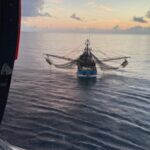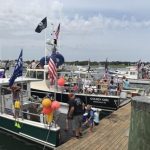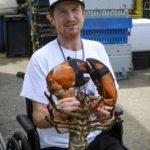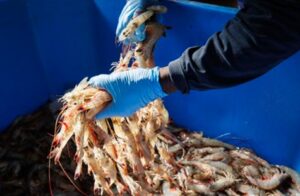Daily Archives: February 9, 2013
Study: Magnetism helps salmon find home river – adn.com
GRANTS PASS, Ore. — Salmon have long been known to use their sense of smell to find their home river when it comes time to spawn, but how do they get close enough to smell the river? Read more here
Wildlife Service boat sinks in Kodiak harbor – adn.com
 A harbor master discovered a sunken U.S. Fish and Wildlife Service vessel in a Kodiak harbor early Friday morning, according to the Coast Guard, which is investigating the sinking. The Arluk is typically used to transport wildlife observers, most often for viewing seabirds, and for transporting personnel to remote camps, Woods said. Read more here
A harbor master discovered a sunken U.S. Fish and Wildlife Service vessel in a Kodiak harbor early Friday morning, according to the Coast Guard, which is investigating the sinking. The Arluk is typically used to transport wildlife observers, most often for viewing seabirds, and for transporting personnel to remote camps, Woods said. Read more here
Striped bass seem down for the count in Maine
 The Maine Department of Marine Resources will give an update next week on how striped bass are faring in Maine’s waters and along the coast. Tuesday’s presentation will include a discussion of research by the Department of Marine Resources on the abundance of juvenile striped bass and the tagging program. The free event will begin at 6 p.m. at the Log Cabin, at 196 Main St. in Yarmouth. Read more here
The Maine Department of Marine Resources will give an update next week on how striped bass are faring in Maine’s waters and along the coast. Tuesday’s presentation will include a discussion of research by the Department of Marine Resources on the abundance of juvenile striped bass and the tagging program. The free event will begin at 6 p.m. at the Log Cabin, at 196 Main St. in Yarmouth. Read more here
North Pacific Council talks economic data collection – vessel replacement for American Fisheries Act boats in the Gulf of Alaska
PORTLAND, Ore. — The North Pacific Fishery Management Council discussed how it will evaluate central Gulf of Alaska rationalization today. Read more here 

The North Pacific Fishery Management Council took action this morning to continue working on vessel replacement for American Fisheries Act boats in the Gulf of Alaska. Read more here
Wassup with Wassip? The Deckboss and his readers will set you straight!
A number of recent comments on the blog have mentioned WASSIP. Not being entirely sure of the meaning of this ugly acronym, Deckboss went fishing for answers. Wassip, and a report on the Battle for Cook Inlet salmon. Read more here
Probe cites wrongs by NOAA prosecutors
 In reviewing the case against Riley and Saludi, Swartwood wrote that, in seeking a $4.74 million penalty, Juliand and MacDonald intervened with a prospective buyer of their businesses; they also charged Riley and Saludi a penalty 17 times for a single allegation of “interference” with law enforcement — a charge that Swartwood dismissed as false. Once they learned of the potential sale, they immediately wrote up the huge penalty and contacted the buyer, actions Swartwood concluded involved “an intention to intimidate.” Underpinning the actions of NOAA’s agents and litigators was a long history and widespread knowledge that the U.S. Coast Guard administrative law judges would side with NOAA. Read more here
In reviewing the case against Riley and Saludi, Swartwood wrote that, in seeking a $4.74 million penalty, Juliand and MacDonald intervened with a prospective buyer of their businesses; they also charged Riley and Saludi a penalty 17 times for a single allegation of “interference” with law enforcement — a charge that Swartwood dismissed as false. Once they learned of the potential sale, they immediately wrote up the huge penalty and contacted the buyer, actions Swartwood concluded involved “an intention to intimidate.” Underpinning the actions of NOAA’s agents and litigators was a long history and widespread knowledge that the U.S. Coast Guard administrative law judges would side with NOAA. Read more here






 t a slower rate than expected. And they will not meet management targets to recover to healthy levels unless something changes dramatically.
t a slower rate than expected. And they will not meet management targets to recover to healthy levels unless something changes dramatically.





































